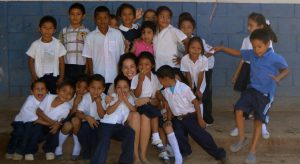
Turkish Foods: 19 Must-Try Dishes & Essential Vocabulary
Discover the best of Turkish foods with our guide to 19 must-try dishes, from kebabs to baklava. Learn essential food vocabulary too!

Discover the best of Turkish foods with our guide to 19 must-try dishes, from kebabs to baklava. Learn essential food vocabulary too!

Today you get two fun videos about my very tiny American accent project! And tons of audio files (scroll down to hear) to show my actual attempts at an American accent 🙂

Next week, I’ll announce my next huge 3 month project in the email list (sign up on the top-right of the site to find out before I announce it on the blog or elsewhere), and you’ll see plenty of language learning updates as I start from scratch, share my struggling progress, and hopefully reach my […]

Those of you who know my story from TEDx talks or blog revelations, will remember that ten years ago I had graduated university in engineering and moved to Valencia Spain, and after six months of the English-speaking-expat lifestyle changed my ways and started my first language learning project of Spanish and then things really took […]

Hey everyone! I’m back after a summer away and my batteries are recharged for the next huge 3-month-to-fluency language project, that I’ll announce soon to those of you in the LHL email list (sign up on the top right to find out!) I had a fantastic time, and will tell you how it went next […]

Hello from Ireland today! After some time with my family, I fly to London for a week (location locked meet-up details right now on the Facebook page), and then I start my next language mission! To find out what that is, make sure you are subscribed to the Language Hacking League email list, by signing […]

The decision I made seven years ago to study Chinese at university changed my life. Right from the beginning I decided that I didn’t just want to learn some Mandarin, I wanted to be proficient. I wanted to speak the language to an advanced level and be able to read a newspaper and write characters with ease. It’s fair to say that I got stuck in immediately, and got completely immersed in my studies!
Seven years later, I can’t say that I’m perfect and don’t make any mistakes, or that I understand and know how to say everything. There’s still a lot of room for me to improve, but I have achieved my original goal. I can speak Mandarin fluently, and I know all the simplified and traditional characters other than the really rare ones. I speak and use Chinese every day, and it has really become a part of my life and a second language to me now.

In continuing the summer series of guest posts, today’s is from Emily, who blogs over at The Babel Times. Her interesting suggestion is about how she learned German from children while living in Switzerland! People often complain that you feel like you are being judged when with adults, and while this is simply not the […]

Today’s guest post is from Judith Meyer, who writes at Learn Yu and is one of the most accomplished polyglots I’ve ever met! We met at an Esperanto event, and have since hung out in Berlin. Of course, I made sure that she contributed to the Skype Me Maybe music video last year! Despite her […]

Today’s guest post is from Mariola Czupowska, who blogs at the Language Wanderer. She is from Poland and was recently inspired to learn Norwegian! She set herself an interesting challenge of recording videos in the language, and used a trip to Oslo to motivate her to make even more progress. I found her story interesting […]
Social